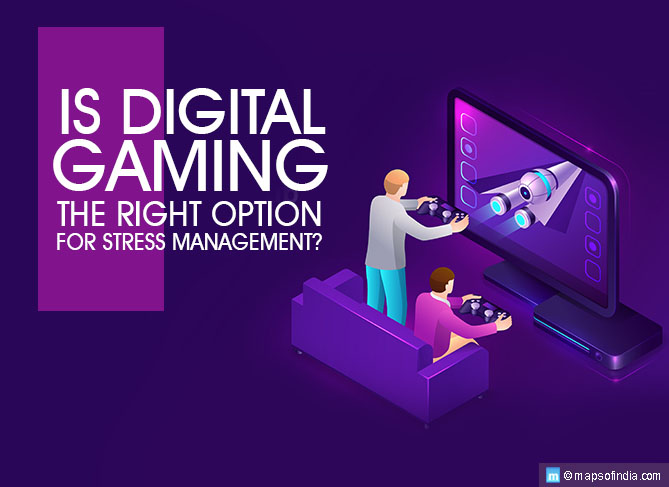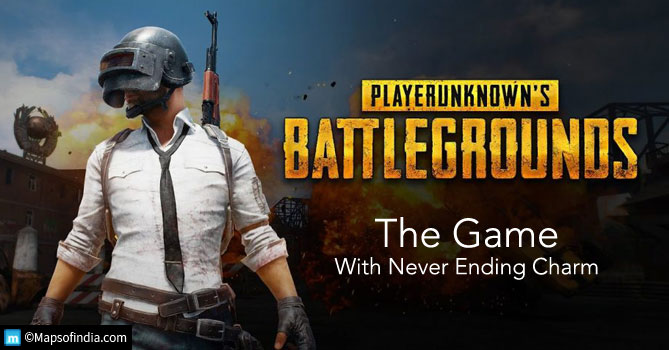
Most of us rush to check our Facebook friend’s status/latest updates or watch YouTube videos (especially cute animal videos) at the end of the day. There are many others who resort to binge watching online shows or playing digital games for hours.
No matter what we do, we do it to de-stress. There is no denying that digital gaming and use of digital devices can help us de-stress and reduce our depression. But how much is too much? Are our online de-stressing habits causing problems for others? Will too much obsession with digital gaming or digital devices adversely affect our critical interpersonal skills?
Let’s find out the answers by checking out the results of different studies and the possible wayouts.
What Does Research Say about Digital Gaming and Stress Management?
Different studies have shown that digital gaming indeed helps in handling stress better, become less depressed, and deal with various mental health issues.
A 2007 study at McGill University, Canada, found that playing “social-intelligence games” reduces stress hormone cortisol by 17%.
A 2009 study was published in “Journal of CyberTherapy & Rehabilitation”. It studied the effects of casual video games on gamers. After studying Heart Rate Variability (HRV) and electroencephalography (EEG), it was discovered that the games lifted overall mood, excitement, and euphoric behaviours of the players.
A 2010 study by Associate Professor Dr. Christopher J. Ferguson at Texas A&M University, USA, showed that playing violent video games can indeed enable players to adopt mental skills as well as handle stress in a better manner. In fact, Ferguson suggested that real life frustrations are released by the gamers while playing violent games, thereby helping them to relax.
A 2012 study has concluded that immersing a person in familiar fictional world (energized by television) can help restore self control of one’s senses.
A 2014 study by Emily Collins and Anna L. Cox at University College in London, UK suggested that there is a direct and positive correlation between digital gamers and the ability of handling stress better.
Researchers at the National Institute on Aging, USA were impressed to find positive effects of digital gaming on cognitive functioning. They even launched a National Science Foundation (NSF) project of US$1.2 million for improving daily cognitive functioning of senior citizens with the use of Nintendo Wii.
A 2018 study found out a mixed response. While some games increased stress, others decreased them. It was concluded that online gaming of think /mind games or puzzle games can lower cortisol levels, leading to lower stress level and less impulsive behaviour. However, fear games or excitement games have the opposite reaction. The study concluded that playing the right game can help to get de-stressed.
Digital Devices too Cause Stress
An increasing number of studies are pointing out that too much use of digital devices can stress us out. American Psychology Association carried out a “Stress in America” study in 2016 among 3,511 U.S. adults. The findings showed that 86% of the sample checked social media accounts, emails, and texts constantly. It also found out that stress level increases significantly due to constant checking of social media accounts, emails, and texts.
Conclusion
Technology is here to stay. There’s no denying that. However, we shouldn’t always rely on it to relax our minds. Though online gaming can help us de-stress, it doesn’t mean that we keep on using it for longer periods of time. We should keep a check on the extent of internet use, online gaming, or use of gadgets because nothing is good when it becomes too much. To manage stress better, you can also take a technology detoxification.
In fact, you can get back to the good old days and spend more time with the family or go to parks for picnics. They are excellent ways to relax. You can also de-stress your frazzled brain by following some of the technology-free ways such as reading books, playing your favourite instrument (tabla, violin, flute, keyboard, acoustic guitar, or anything else), meditating, light exercising, baking a cake, or resorting to other activities people used to do in the good old days.





